Café de las Sonrisas
Intro
Café de las Sonrisas is a multi-purpose center for people who are deaf or hard of hearing in Granada, Nicaragua. This place is amazing--A must-visit in Granada, a city with an old Spanish-style colonial center in the southwest of the country.
The center was founded in 2007 by Antonio Prieto Buñuel, a Spaniard who goes by Tío Antonio. He was working at a local special education school and realized that students with disabilities had a hard time finding work in Nicaragua after they would graduate. Around 99% of people with a disability in Nicaragua are unemployed. So, Tío Antonio set out to address the problem.
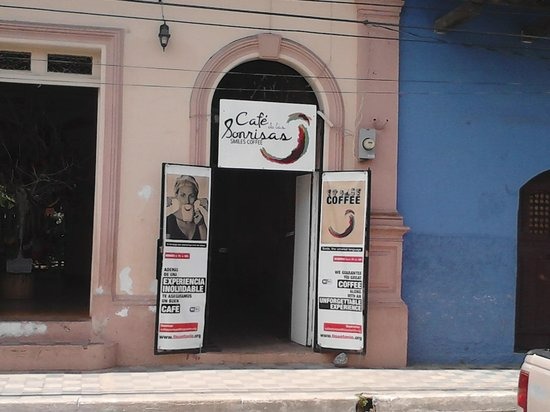
Hammock Store
Tío Antonio first opened a hammock store. He hired employees who had a disability and taught them how to weave colorful hammocks. They, in turn, teach other new hires how to weave. The store sells hammocks to people in Nicaragua and around the world.
Below you can see some of the store's hammock designs. The employees will teach tourists how to weave the hammocks, too. Finally, you can see the hammock that I bought for my parents in their backyard.
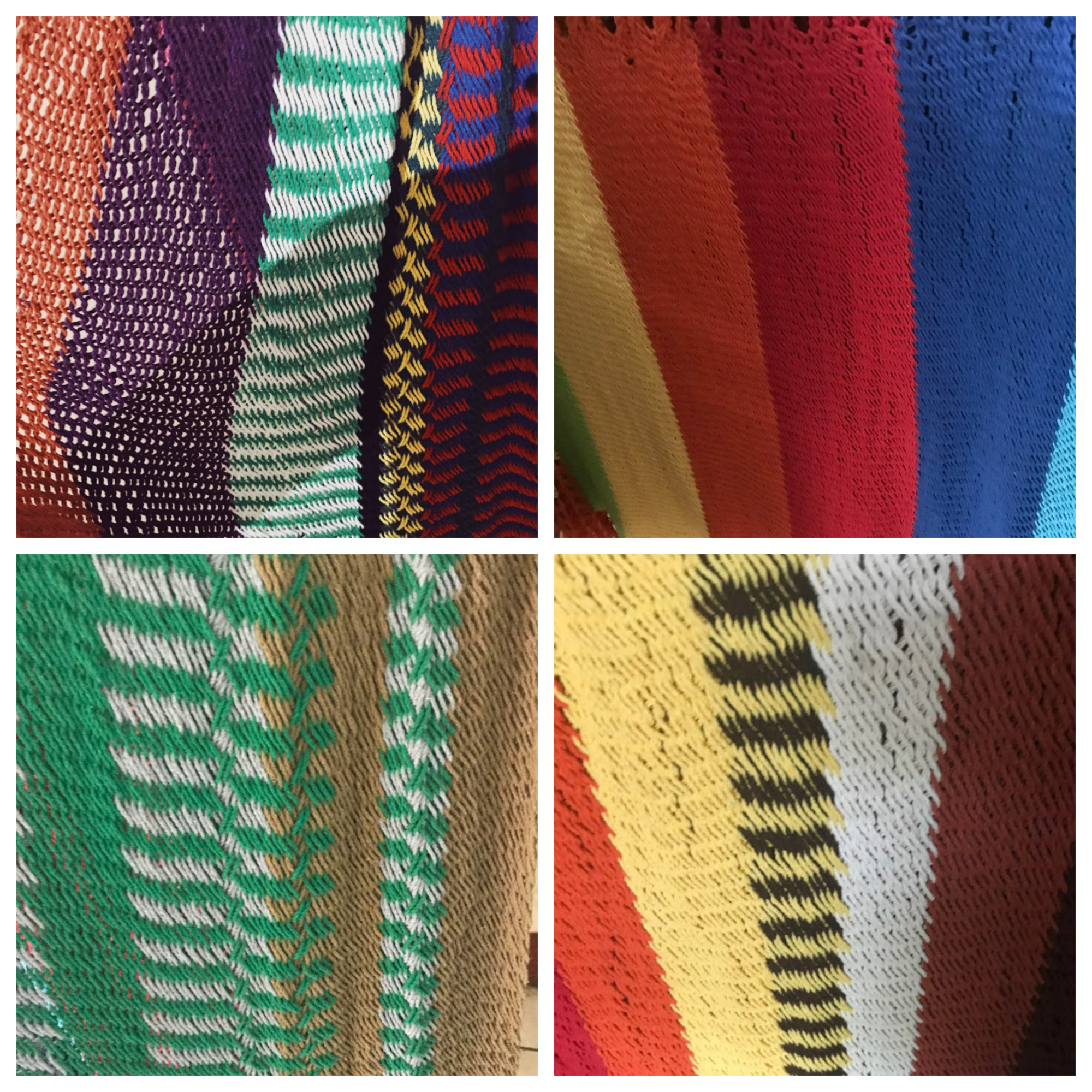
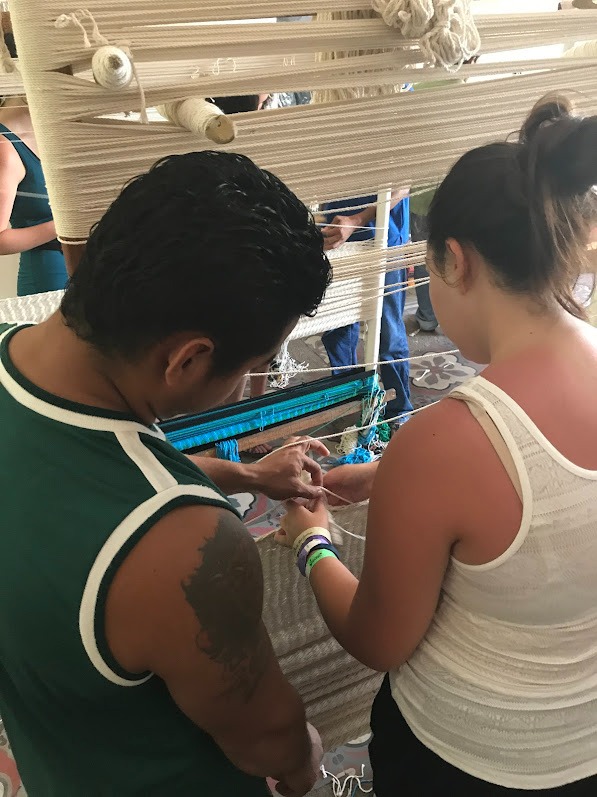
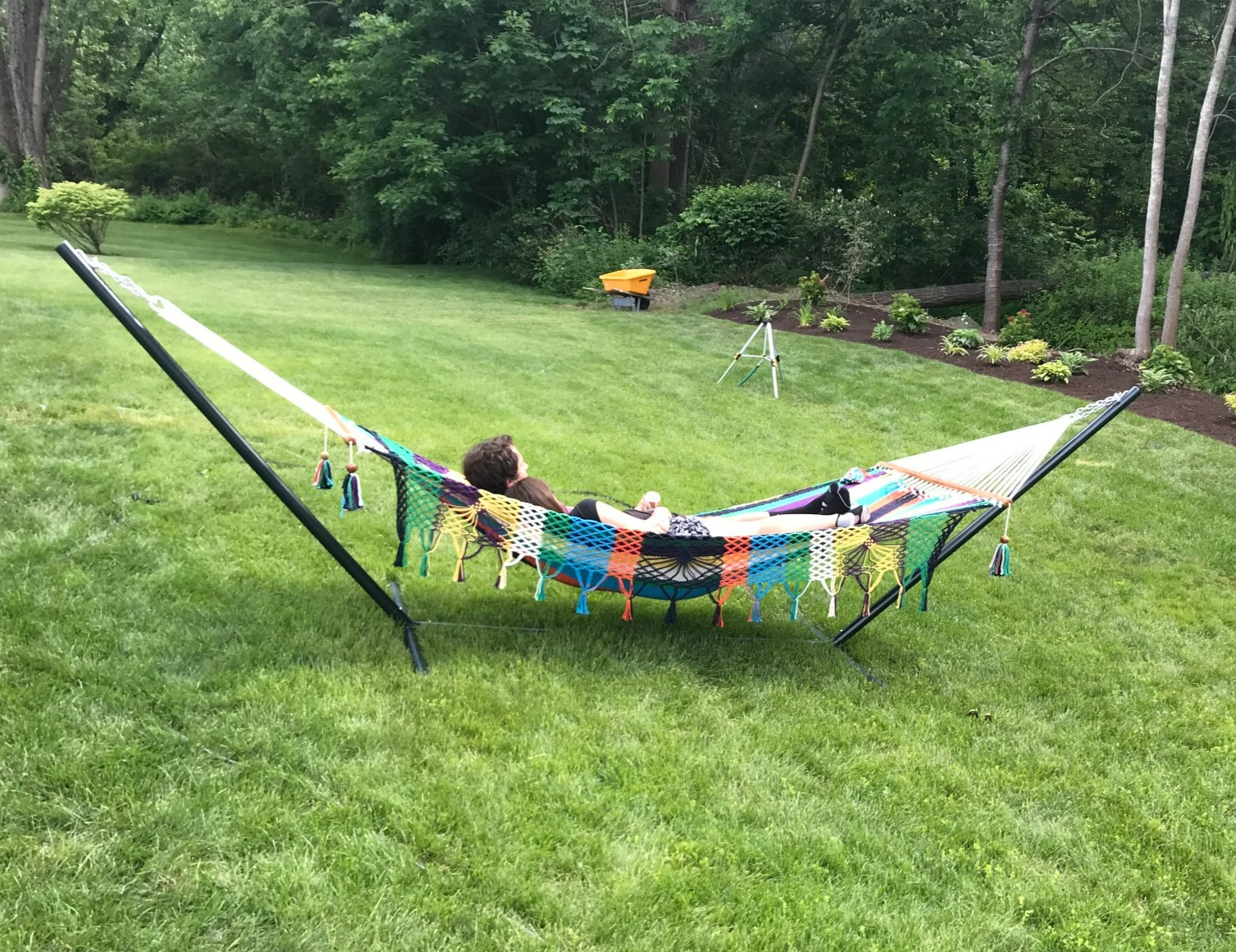
The War on Plastic Bags!
The center next incorporated recycling into its mission. In order to combat the problem of excess plastic bags in Nicaragua and all around the world, they began the Never-ending Hammock. The Never-ending Hammock is a hammock made out of colorful plastic bags that hangs from the ceiling of the center and is continuously growing because when tourists like us visit the center, the employees teach us how to weave more plastic bags to the hammock.
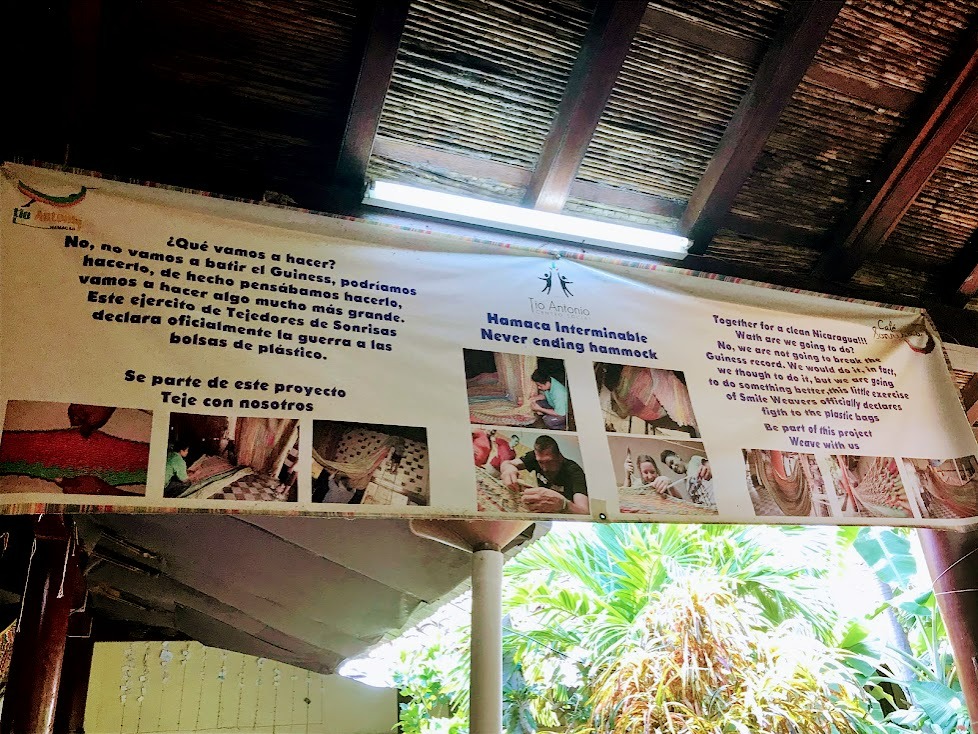
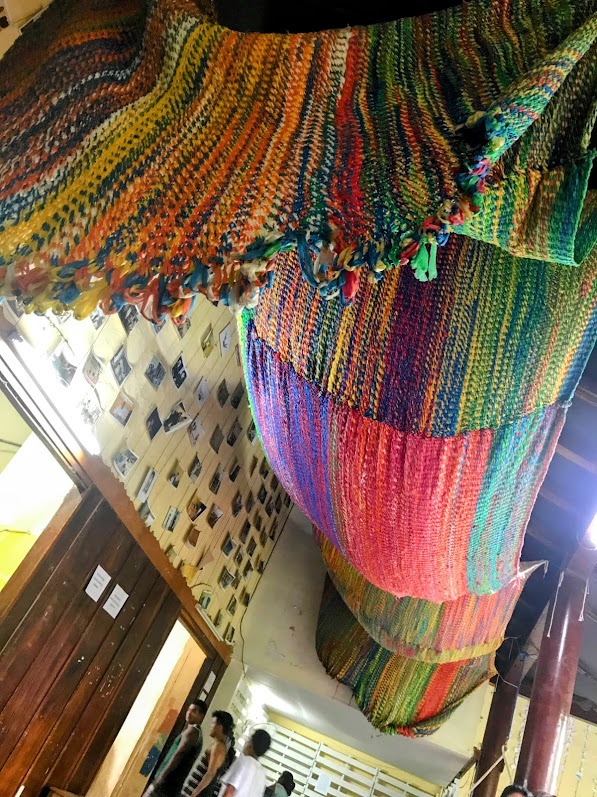
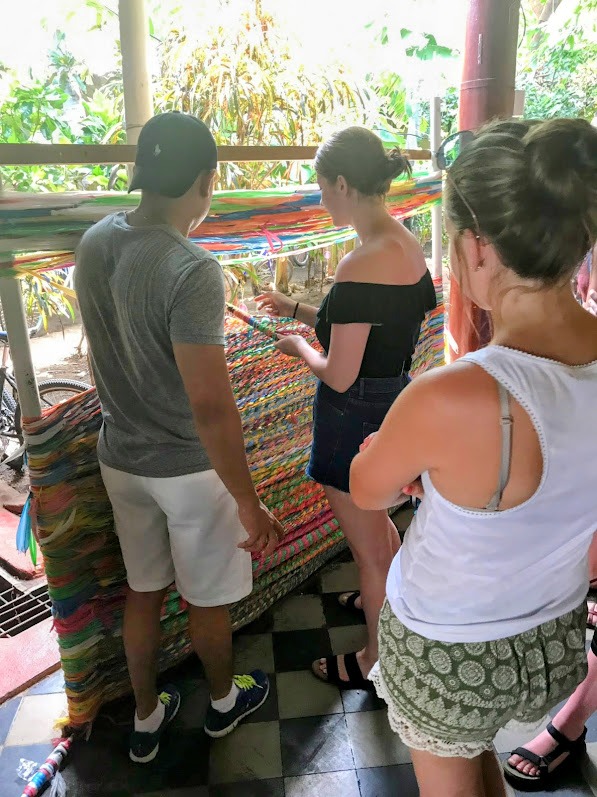
The Café
In 2012, the center added a restaurant called Café de las Sonrisas, or Café of Smiles. Nearly all employees who work here have a disability, many of which is deafness. At the restaurant, everyone communicates in sign language. When eating at the restaurants, the servers will teach you how to order in Nicaraguan Sign Language. (Most countries around the world have their own forms of sign language.)
Nicaraguan Sign Language is notable because it was informally invented by deaf children in Nicaragua in the 1980's. An American linguist heard about these children, monitored them over a period of time, documented their interactions, and realized how well defined their language was with grammar structures and all. This short Witness History podcast episode by the BBC World Service tells the story: https://www.bbc.co.uk/programm...
The entire center runs through the nonprofit organization Centro Social Tío Antonio.
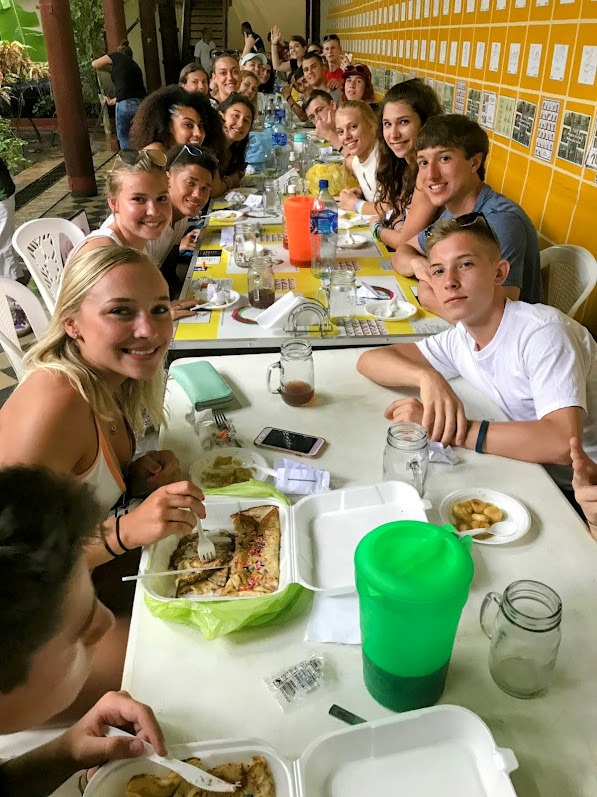
Post a comment